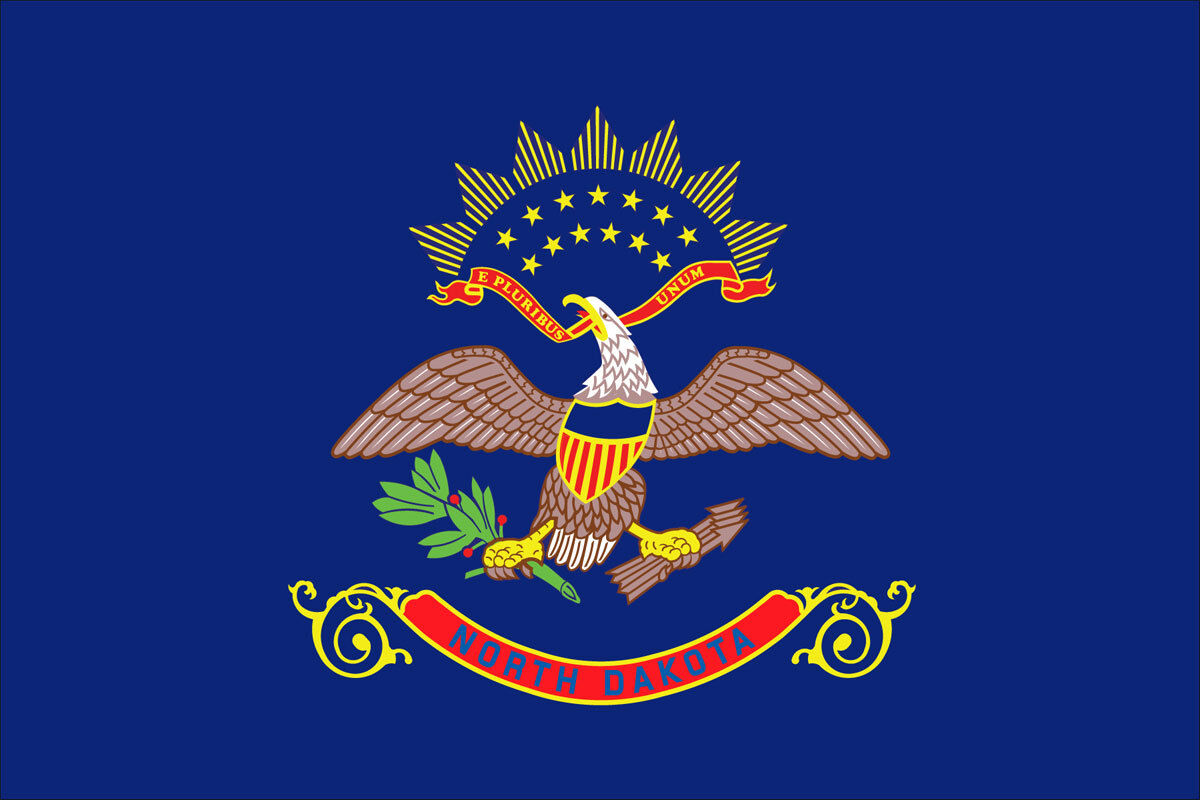In North Dakota, security deposit laws play a crucial role in ensuring fair and transparent transactions between landlords and tenants. Understanding these laws is essential for both parties to protect their rights and fulfill their responsibilities. This article provides an overview of the security deposit laws in North Dakota, highlighting key provisions and recent developments in 2024.
Security deposits serve as a form of financial assurance for landlords, safeguarding against potential damages or unpaid rent by tenants. They are typically collected at the beginning of a lease agreement and are returned to the tenant at the end, minus any deductions for valid reasons.
North Dakota’s security deposit laws dictate important provisions that govern the collection, handling, and return of security deposits. These provisions include the maximum amount that can be charged as a security deposit, the timeframe for returning deposits, and the requirements for providing itemized deductions.
In 2024, North Dakota has witnessed changes in its security deposit laws, including recent amendments and updates. These changes may affect both landlords and tenants, and it is crucial to stay informed about the new regulations.
For landlords, understanding the key obligations and duties regarding security deposits is vital. They must adhere to proper collection procedures, provide necessary written documentation, and follow specific guidelines for deducting amounts from the deposit.
Tenants, on the other hand, have rights and responsibilities when it comes to security deposits. They should be aware of their entitlement to receive a written receipt, know the conditions for a full refund, and understand the process for disputing deductions.
Taking appropriate steps regarding security deposits is essential for both landlords and tenants. This article will provide guidance on the collection process, return guidelines, and strategies for resolving disputes or seeking legal remedies.
By staying informed about North Dakota’s security deposit laws and adhering to the guidelines outlined in this article, landlords and tenants can ensure a smooth and fair rental experience.
Key Takeaways:
- New amendments and regulations: Recent changes in North Dakota Security Deposit Laws for 2024 introduce new amendments and regulations that landlords and tenants need to be aware of.
- Tenant rights and responsibilities: Understanding the rights and responsibilities of tenants under North Dakota Security Deposit Laws is crucial for a smooth rental experience.
- Legal remedies for violations: If landlords fail to comply with North Dakota Security Deposit Laws, tenants have options for legal remedies, including mediation, arbitration, and filing a lawsuit.

Overview of Security Deposit Laws in North Dakota
When it comes to security deposit laws in North Dakota, it’s important to have a solid understanding of the basics. In this overview, we’ll dive into the purpose behind security deposits and highlight key provisions of North Dakota’s laws. From knowing how much landlords can charge to understanding the rules for returning deposits, this section will provide you with the essential information you need to navigate the ins and outs of North Dakota’s security deposit regulations.
Understanding the Purpose of Security Deposits
The purpose of security deposits in North Dakota is to protect landlords from potential damages or unpaid rent caused by tenants. These deposits act as a form of financial security by providing landlords with funds to cover any necessary repairs or outstanding rent payments at the end of a lease. Security deposits incentivize tenants to maintain the property and fulfill their rental obligations, thereby understanding the purpose of security deposits is crucial. By understanding the purpose of security deposits, both landlords and tenants can ensure a fair and transparent rental agreement that promotes a mutually beneficial relationship. Fact: The security deposit amount is typically refundable, minus any deductions for damages or unpaid rent.
Key Provisions of North Dakota Security Deposit Laws
Key provisions of North Dakota security deposit laws include requirements for landlords to provide a written agreement that outlines the terms and conditions of the deposit. Landlords are also mandated to put the tenant’s security deposit in a separate account and provide them with a receipt. Landlords must return the deposit within 30 days of the tenant’s move-out, along with an itemized list of any deductions made. Failure to comply with these provisions could lead to legal consequences for the landlord. Pro-tip: To ensure the smooth return of your security deposit, document the condition of the rental unit before moving in and address any concerns with the landlord promptly.
Changes in North Dakota Security Deposit Laws in 2024
North Dakota’s security deposit laws have undergone significant changes in 2024, bringing both recent amendments and new regulations that impact tenants and landlords alike. Stay ahead of the curve as we delve into the details of these changes, exploring the recent amendments and updates as well as the new regulations affecting security deposits in North Dakota. Get ready for an informative dive into the evolving landscape of tenant-landlord relationships in the state.
Recent Amendments and Updates
Recent amendments and updates have been made to North Dakota security deposit laws, bringing important changes that landlords and tenants must be aware of. These updates introduce stricter regulations regarding the collection and return of security deposits. Additionally, landlords now have a new requirement to provide itemized statements that detail any deductions made. To resolve disputes, mediation or arbitration are now established as clearer guidelines before turning to a lawsuit. It is of utmost importance for both parties to stay well-informed about these recent amendments and updates to ensure compliance and prevent any potential legal issues.
Pro-tip: To stay abreast of changes in North Dakota security deposit laws, it is recommended to frequently check official government websites or seek advice from a legal professional who specializes in landlord-tenant law.
New Regulations Affecting Security Deposits in North Dakota
New regulations affecting security deposits in North Dakota have been implemented in 2024 to better protect tenants and clarify landlord obligations. Landlords are now required to adhere to the New Regulations Affecting Security Deposits in North Dakota by providing a written itemized list of deductions within 30 days of lease termination. Additionally, they must return the security deposit within 60 days in accordance with these new regulations. One important change outlined in the New Regulations Affecting Security Deposits in North Dakota is related to the eviction process, which states that landlords cannot withhold the deposit based solely on eviction. These important and necessary new regulations aim to ensure fair treatment and transparency for both landlords and tenants. Pro-tip: Familiarize yourself with the specific New Regulations Affecting Security Deposits in North Dakota to safeguard your rights and avoid disputes.
Important Considerations for Landlords and Tenants
When it comes to navigating North Dakota’s security deposit laws, both landlords and tenants have some important considerations to keep in mind. In this section, we’ll uncover the rights and responsibilities of tenants, as well as the obligations and duties that landlords must adhere to. From understanding the fine print to ensuring a fair and smooth rental experience, we’ll dive into the crucial details that both parties need to know. So, whether you’re a landlord or a tenant, buckle up and get ready for a comprehensive guide to North Dakota’s security deposit laws.
Tenant Rights and Responsibilities
Tenants in North Dakota have important rights and responsibilities when it comes to their security deposits. It is crucial for tenants to understand and uphold their tenant rights and responsibilities in order to protect themselves and ensure a fair and transparent process. Some of the key tenant rights include the right to receive a receipt for the security deposit, the right to be provided with an itemized list of any deductions made, and the right to dispute any unfair deductions. On the other hand, tenants also have the responsibility to leave the rental unit clean and undamaged, as well as to provide a forwarding address for the return of the security deposit. By fully comprehending and fulfilling these tenant rights and responsibilities, tenants can confidently navigate through the security deposit process.
Landlord Obligations and Duties
Landlords have certain obligations and duties when it comes to security deposits in North Dakota. Here are some key points to consider:
- Collecting the deposit: Landlords must fulfill their landlord obligations and duties by clearly stating the amount of the security deposit in the lease agreement and provide a receipt to the tenant.
- Depositing the funds: Landlords are required to fulfill their obligations and duties as landlords by placing the security deposit in a separate escrow account and provide the tenant with the bank’s name and address.
- Using the deposit: Landlords have obligations and duties as landlords and can only deduct from the deposit for unpaid rent, damages beyond normal wear and tear, or unpaid utility bills.
- Inspection report: Within 3 days of move-in, landlords must fulfill their obligations and duties as landlords by providing tenants with an itemized list of any existing damages or defects in the rental unit.
- Returning the deposit: Landlords have 30 days to fulfill their obligations and duties as landlords and return the security deposit along with an itemized list of any deductions.
Steps to Take Regarding Security Deposits
When it comes to dealing with security deposits, understanding the proper steps to take is crucial. In this section, we’ll walk you through the process of handling security deposits, covering important aspects such as the collection process and return guidelines. So, whether you’re a tenant or a landlord in North Dakota, buckle up and get ready to navigate the ins and outs of security deposits with confidence.
Security Deposit Collection Process
Collecting a security deposit involves following a systematic Security Deposit Collection Process to ensure compliance with North Dakota security deposit laws. Here are the key steps to take in the security deposit collection process:
- Inform the tenant: Clearly communicate the amount of the security deposit and the purpose for which it is collected.
- Obtain written agreement: Have the tenant sign a lease agreement or rental contract that includes provisions related to the security deposit.
- Document the condition: Complete a detailed move-in inspection report, noting the condition of the rental unit before the tenant moves in.
- Collect the deposit: Collect the security deposit from the tenant before they take possession of the rental unit.
- Provide a receipt: Give the tenant a written receipt for the security deposit, stating the amount paid and the date received.
Following these steps helps ensure a smooth and lawful security deposit collection process, protecting the rights and interests of both landlords and tenants.
Security Deposit Return Guidelines
- Follow the security deposit return guidelines: Returning a security deposit involves following specific guidelines to ensure fairness and compliance with the law.
- Inspect the property: Conduct a thorough inspection to identify any damages beyond normal wear and tear.
- Calculate deductions: Determine the amount to deduct for repairs or unpaid rent, keeping in mind any applicable state laws.
- Prepare an itemized statement: Create a detailed breakdown of the deductions, including receipts and estimates for repairs.
- Notify the tenant: Provide written notice to the tenant within the specified timeframe, explaining the deductions and refund amount.
- Settlement agreement: If both parties agree on the deductions, obtain written consent from the tenant.
- Return the deposit: Send the remaining refund to the tenant within the required timeframe, usually within a certain number of days.
- Document and retain records: Keep copies of all correspondence, receipts, and records related to the security deposit return.
Resolving Disputes and Legal Remedies
When it comes to resolving disputes and seeking legal remedies under North Dakota security deposit laws, there are two main avenues to consider. We’ll dive into the mediation and arbitration options available, providing a fair and neutral ground for conflict resolution. We’ll explore the process of filing a lawsuit in case of any violations, ensuring your rights as a tenant are protected. Stay informed about your options and take proactive steps towards a favorable resolution.
Mediation and Arbitration Options
Mediation and arbitration options are readily available in North Dakota for resolving disputes related to security deposits. If you find yourself in such a situation, it’s important to follow these steps:
- Research: Take the time to become familiar with both the mediation and arbitration processes. Understand the advantages they offer.
- Choose: Assess your specific situation and determine whether mediation or arbitration is the more suitable option.
- Select a mediator or arbitrator: Seek out a qualified and impartial professional who specializes in handling landlord-tenant disputes.
- Initiate the process: Get in touch with the chosen mediator or arbitrator to schedule a session where you can discuss the details of your dispute.
- Participate: Make sure to attend the mediation or arbitration session and present your case or concerns effectively.
- Negotiate or arbitrate: Engage in meaningful discussions or proceedings with the goal of finding a mutually agreeable resolution.
In case you encounter any difficulties during the mediation or arbitration process, don’t hesitate to seek legal advice or guidance. Remember, these mediation and arbitration options are designed to provide an efficient and fair resolution to security deposit disputes.
Filing a Lawsuit in Case of Violations
Filing a lawsuit is a last resort when dealing with violations of North Dakota security deposit laws. If you find yourself in this situation, here are the steps you can take:
1. Gather evidence: Collect all relevant documents, such as the lease agreement, move-in/move-out inspection reports, and any communication with the landlord regarding the security deposit.
2. Consult an attorney: Seek legal advice from an experienced attorney who specializes in landlord-tenant disputes. They will guide you through the process and help you understand your rights.
3. Demand letter: Send a formal demand letter to the landlord, outlining the violations and requesting the return of your security deposit. Keep a copy of this letter for your records.
4. File a lawsuit in case of violations: If the landlord refuses to comply, you may need to file a lawsuit in small claims court or district court. Your attorney can assist you with the necessary paperwork and represent your interests.
5. Attend court hearings: Be prepared to attend court hearings and present your evidence to support your case. Follow any instructions provided by the court and be respectful throughout the process.
Remember, filing a lawsuit in case of violations should be a last resort. It’s always advisable to try resolving the dispute through negotiation or mediation first. Good communication and documentation can often prevent the need for legal action.
Some Facts About North Dakota Security Deposit Laws: What’s new in 2024:
- ✅ A security deposit in North Dakota is limited to one month’s rent, except for tenants with felony offenses or previous lease violations. (Source: Our Team)
- ✅ Landlords in North Dakota can charge a pet deposit, but it cannot exceed $2,500 or the equivalent of 2 months’ rent. (Source: Our Team)
- ✅ The security deposit must be stored in an interest-accruing or federally insured account and tenants who have rented for more than 9 months are entitled to receive interest. (Source: Our Team)
- ✅ The security deposit cannot be used as last month’s rent, unless stated in the lease agreement. (Source: Our Team)
- ✅ Landlords have the right to withhold part of the security deposit to cover unpaid utility bills, excessive cleaning costs, or lost rental income due to tenant abandonment. (Source: Our Team)
Frequently Asked Questions
What is the maximum amount of a security deposit a landlord can ask for in North Dakota?
In North Dakota, the maximum amount of a security deposit that a landlord can ask for is one month’s rent, with exceptions for tenants with felony offenses or previous lease violations.
Can landlords charge a pet deposit in North Dakota?
Yes, landlords in North Dakota can charge a pet deposit. However, the pet deposit cannot exceed $2,500 or the equivalent of 2 months’ rent.
What are the requirements for storing the security deposit in North Dakota?
Once received, the security deposit in North Dakota must be stored in an interest-accruing or federally insured account. Additionally, landlords must pay interest to tenants who have rented the property for more than 9 months.
Can the security deposit be used as last month’s rent in North Dakota?
No, the security deposit in North Dakota cannot be used as last month’s rent unless specified in the lease agreement.
Under what circumstances can a landlord withhold part of the security deposit in North Dakota?
Landlords in North Dakota have the right to withhold part of the security deposit to cover unpaid utility bills, excessive cleaning costs, or lost rental income due to tenant abandonment.
What are the landlord’s rights regarding the security deposit in North Dakota?
In North Dakota, landlords can use the security deposit to repair damages caused by the tenant or their guests, pay for cleaning the rental property, or cover unpaid rent. However, normal wear and tear cannot be deducted from the security deposit.
Dave is a seasoned real estate investor with over 12 years of experience in the industry. Specializing in single-family residential real estate, David’s strategic approach combines market analysis, financial acumen, and a deep understanding of urban development trends to maximize investment returns.









